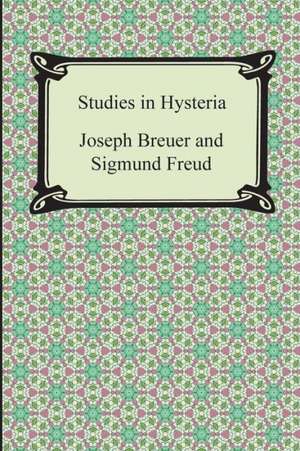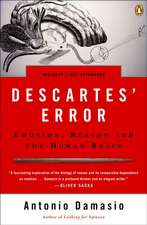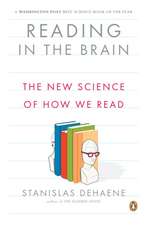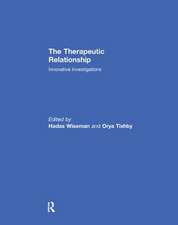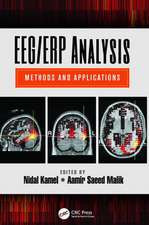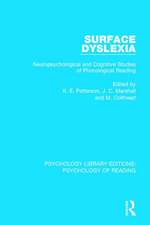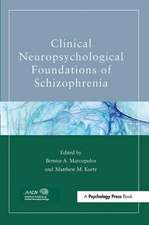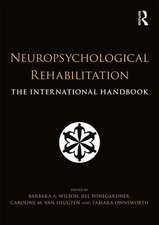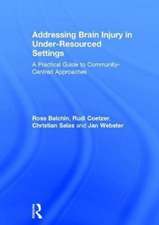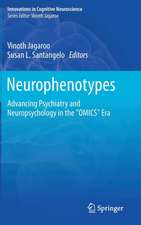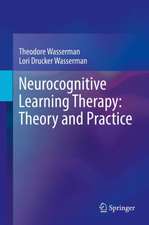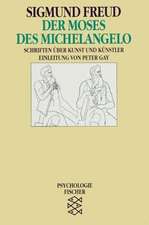Studies in Hysteria
Autor Sigmund Freud, Joseph Breuer Traducere de A. A. Brillen Limba Engleză Paperback – 31 dec 2012
| Toate formatele și edițiile | Preț | Express |
|---|---|---|
| Paperback (2) | 72.08 lei 6-8 săpt. | |
| Penguin Books – 31 mai 2004 | 132.76 lei 3-5 săpt. | |
| Digireads.com – 31 dec 2012 | 72.08 lei 6-8 săpt. |
Preț: 72.08 lei
Preț vechi: 75.87 lei
-5% Nou
Puncte Express: 108
Preț estimativ în valută:
13.79€ • 14.40$ • 11.42£
13.79€ • 14.40$ • 11.42£
Carte tipărită la comandă
Livrare economică 04-18 aprilie
Preluare comenzi: 021 569.72.76
Specificații
ISBN-13: 9781420948608
ISBN-10: 1420948601
Pagini: 170
Dimensiuni: 152 x 229 x 10 mm
Greutate: 0.26 kg
Editura: Digireads.com
ISBN-10: 1420948601
Pagini: 170
Dimensiuni: 152 x 229 x 10 mm
Greutate: 0.26 kg
Editura: Digireads.com
Cuprins
Studies in Hysteria Introduction by Rachel Bowlby
Translator's Preface
Preface to the First Edition
Preface to the Second Edition
I. On the Psychical Mechanism of Hysterical Phenomena (Preliminary Statement)
(Breuer and Freud)
II. Case Histories
1. Fr?ulein Anna O. (Breuer)
2. Frau Emmy von N. (Freud)
3. Miss Lucy R. (Freud)
4. Katharina (Freud)
5. Fr?ulein Elisabeth von R.(Freud)
III. Theoretical Issues (Breuer)
1. Are All Hysterical Phenomena Ideogenic?
2. Intracerebral Tonic Excitation - Affects
3. Hysterical Conversion
4. Hypnoid States
5. Ideas that are Unconscious or Inadmissable to Consciousness, Splitting of the Psyche
6. Innate Disposition; The Development of Hysteria
On the Psychotherapy of Hysteria (Freud)
Hysterical Phantasies and their Relation to Bisexuality (Freud)
Translator's Preface
Preface to the First Edition
Preface to the Second Edition
I. On the Psychical Mechanism of Hysterical Phenomena (Preliminary Statement)
(Breuer and Freud)
II. Case Histories
1. Fr?ulein Anna O. (Breuer)
2. Frau Emmy von N. (Freud)
3. Miss Lucy R. (Freud)
4. Katharina (Freud)
5. Fr?ulein Elisabeth von R.(Freud)
III. Theoretical Issues (Breuer)
1. Are All Hysterical Phenomena Ideogenic?
2. Intracerebral Tonic Excitation - Affects
3. Hysterical Conversion
4. Hypnoid States
5. Ideas that are Unconscious or Inadmissable to Consciousness, Splitting of the Psyche
6. Innate Disposition; The Development of Hysteria
On the Psychotherapy of Hysteria (Freud)
Hysterical Phantasies and their Relation to Bisexuality (Freud)
Notă biografică
Sigmund Freud was born in 1856 in Moravia; between the ages of four and eighty-two his home was in Vienna: in 1938 Hitler's invasion of Austria forced him to seek asylum in London, where he died in the following year.
His career began with several years of brilliant work on the anatomy and physiology of the nervous system. He was almost thirty when, after a period of study under Charcot in Paris, his interests first turned to psychology, and another ten years of clinical work in Vienna(at first in collaboration with Breuer, an older colleague) saw the birth of his creation, psychoanalysis. This began simply as a method of treating neurotic patients by investigating their minds, but it quickly grew into an accumulation of knowledge about the workings of the mind in general, whether sick or healthy. Freud was thus able to demonstrate the normal development of the sexual instinct in childhood and, largely on the basis of an examination of dreams, arrived at his fundamental discovery of the unconscious forces that influence our everyday thoughts and actions. Freud's life was uneventful, but his ideas have shaped not only many specialist disciplines, but the whole intellectual climate of the last half-century
Nicola Luckhurst is a lecturer in literature at Goldsmith’s College, University of London.
His career began with several years of brilliant work on the anatomy and physiology of the nervous system. He was almost thirty when, after a period of study under Charcot in Paris, his interests first turned to psychology, and another ten years of clinical work in Vienna(at first in collaboration with Breuer, an older colleague) saw the birth of his creation, psychoanalysis. This began simply as a method of treating neurotic patients by investigating their minds, but it quickly grew into an accumulation of knowledge about the workings of the mind in general, whether sick or healthy. Freud was thus able to demonstrate the normal development of the sexual instinct in childhood and, largely on the basis of an examination of dreams, arrived at his fundamental discovery of the unconscious forces that influence our everyday thoughts and actions. Freud's life was uneventful, but his ideas have shaped not only many specialist disciplines, but the whole intellectual climate of the last half-century
Nicola Luckhurst is a lecturer in literature at Goldsmith’s College, University of London.
